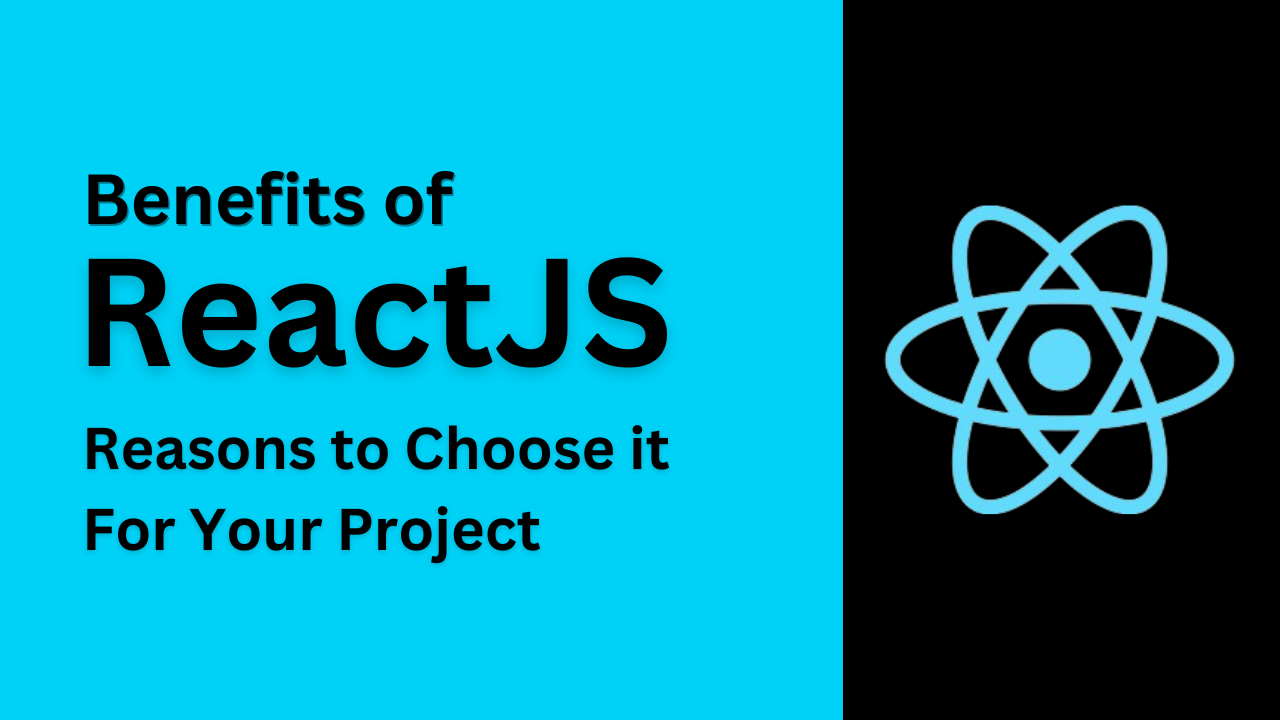Succinct pointers on why ReactJS deserves all praise for web development, single-page apps, and progressive web app development!
Vue.JS. Svelte.sj, Ember.js, Angular, Preact, Next.js, Gatsby, and Backbone.js are some of the web development frameworks that can be used in place of ReactJS, as per need and specific requirements. Let’s learn about ReactJS, its benefits and why is it applicable for web app development/web development!
What is ReactJS?
Js is for JavaScript. React is a framework for building user interfaces. As JavaScript is being used for both frontend and backend, it becomes the standard. It combines with React to make it declarative, efficient, and flexible. Such user interfaces are interactive.
They often make use of component based approach. React components are reusable, and are rendered using virtual DOM. they are typically written in HTML and JS. The virtual DOM (Domain Object Model) is a lightweight representation of the real DOM and is used to efficiently update the user interface during any changes of data.
React uses virtual DOM to calculate the difference between the current state of the user interface (UI) and the state they wish to achieve, and the real DOM is updated with the necessary changes only. React Apps owe their speed, flexibility and mobile friendliness due to this feature. Due to this it is being used to convert static web pages into dynamic ones.
Choosing React JS for developing web applications
Although all reasons stated here look quite similar, and overheard, they are still pertinent to ReactJS’ growth. This validates the fact, why this framework is still applicable in modern times.
Performance: Virtual DOM makes it a good choice for applications that need to be fast and responsive. This means that only the parts of the UI that need to be updated are actually re-rendered, which leads to significant performance improvements for complex applications.
Presence of a varied community: Plenty of resources available to help you learn and use the framework. There is also a large ecosystem of third-party libraries and tools that can be used with React JS.
Easy to learn: React JS is relatively easy to learn, especially if you have prior experience with JavaScript. The syntax is simple and straightforward, and there are plenty of tutorials and resources available to help you get started.
Scalability: ReactJS is very scalable, thanks to its component-based architecture. This makes it a good choice for applications that need to be able to handle a large number of users and requests.
SEO-friendly: ReactJS is SEO-friendly, thanks to its ability to render server-side and client-side. This makes it a good choice for applications that need to be able to rank well in search engines.
Component-based architecture: ReactJS uses a component-based architecture, which makes it easy to create reusable and maintainable code, making it easier to create and maintain complex UIs.
Virtual DOM: ReactJS uses a virtual DOM, which is a lightweight representation of the real DOM. This makes it very efficient to update the UI, as ReactJS only needs to update the virtual DOM and then diff it with the real DOM to determine the minimal changes that need to be made.
One-way data flow: ReactJS uses a one-way data flow, which makes it easy to reason about the state of your application. Data flows down from parent components to child components, and child components can only send data back to their parents through props.
Large community and ecosystem: Many resources are available to help developers learn and use ReactJS. Also many third-party libraries and components are available that you can use to build web/mobile applications.
Side Discussion: ReactJS for developing Mobile Applications
Besides this, if you are a web developer who is interested in developing mobile applications, React JS is a great option to consider. With React JS, you can use your existing skills to build native mobile apps for iOS and Android.
React is used for developing single-page or mobile applications. However, React JS itself is not a mobile development framework. To develop mobile applications with React JS, you will need to use a mobile development framework that supports React JS. We have React Native for this reason. It is an open-source mobile application framework that allows developers to build native mobile apps for iOS and Android using JavaScript and React.
Besides React Native, NativeScript also supports Mobile App Development with React. It is an open-source mobile application framework that allows developers to build native mobile apps for iOS and Android using JavaScript, TypeScript, Angular, Vue.js, or React.
React is preferable for Mobile App Development due to code reusability, high performance, and the presence of large community.
Challenges with ReactJS
React JS is a powerful and versatile framework that can be used to create a wide variety of web applications. It is a good choice for projects that require performance, scalability, and maintainability. However, it is important to weigh the pros and cons before deciding whether to hire a ReactJS development company for your next project. No framework is perfect, and React JS is no exception. Here are a few of the potential drawbacks of using React JS:
Steep learning curve: While React JS is relatively easy to learn, it can take some time to master the more advanced concepts. This is especially true if you are new to web development altogether.
Large bundle size: React JS applications can be quite large, which can lead to slower loading times. This is especially true if you are using a lot of third-party libraries.
Not ideal for all projects: React JS is not ideal for all projects. For example, it is not a good choice for projects that require a lot of server-side rendering.
Conclusive: Why is React JS the future of web app development?
React JS is a powerful and versatile JavaScript library that is well-suited for building modern web applications. It is fast, scalable, easy to use, and has a large community of developers. It is a well-tested and reliable library. Many popular web application development companies like Facebook, Google, and Netflix are hiring ReactJS developers these days.
If you are looking for a JavaScript library to build your next web application, ReactJS is a great option. It is easy to learn, efficient, flexible and has a large community and ecosystem.





